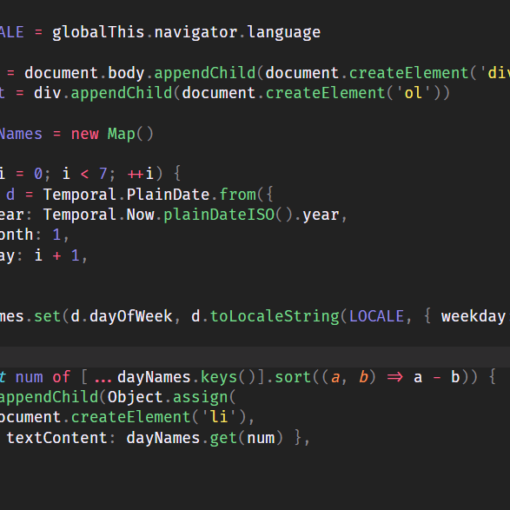Introduction
The digital age has witnessed an unprecedented surge in the demand for mobile applications. As smartphones become integral to our daily lives, businesses and individuals seek innovative ways to connect and engage with their audience. At the heart of this mobile revolution lies mobile application development software, the powerhouse that turns ideas into interactive, user-friendly apps.
Evolution of Mobile Application Development
To understand the current state of mobile application development, we must glance back at its evolution. From the early days of basic utility apps to the sophisticated and feature-rich applications of today, the journey has been shaped by technological advancements. The progression from native to cross-platform development reflects the industry’s constant quest for efficiency and accessibility.
Key Components of Mobile Application Development Software
Mobile application development software comprises various tools and features essential for creating seamless user experiences. User interface design tools enable developers to craft visually appealing layouts, while integrated development environments (IDEs) provide a comprehensive workspace for coding, testing, and debugging.
Mobile App Development Process
The development of a mobile app follows a systematic process, starting with planning and ideation. The coding and testing phases are critical, ensuring the app functions flawlessly across diverse devices. Iterative testing and user feedback play a pivotal role in refining the app before launch.
Challenges in Mobile Application Development
The diverse landscape of mobile devices poses challenges in terms of compatibility. Developers must navigate the intricacies of different operating systems, screen sizes, and hardware specifications. Security concerns, including data protection and privacy, add another layer of complexity to the development process.
Technological Trends in Mobile App Development
Staying ahead in the competitive app market requires adopting technological trends. Cross-platform development tools, such as React Native and Flutter, streamline the process by allowing code sharing across multiple platforms. Integration of artificial intelligence (AI) and machine learning (ML) enhances user experiences through personalized interactions.
Impact of Mobile Apps on Businesses
Mobile apps have transformed how businesses engage with their customers. From enhancing customer loyalty to expanding market reach, mobile apps play a pivotal role in modern business strategies. The ability to directly connect with users through push notifications and personalized content has redefined customer engagement.
Monetization Strategies for Mobile Apps
Monetizing mobile apps involves strategic planning. In-app purchases, subscription models, and advertisements are popular revenue streams. Successful apps strike a balance between offering value to users and generating revenue through these channels.
Popular Mobile Application Development Software
The market offers a plethora of mobile application development tools, each with its strengths and specialties. Industry-leading tools like Android Studio, Xcode, and Flutter cater to different development needs. Choosing the right software depends on factors such as project requirements and the development team’s skill set.
Future Prospects of Mobile App Development
The future of mobile app development holds exciting possibilities. Emerging technologies, including augmented reality (AR), virtual reality (VR), and 5G connectivity, open new avenues for innovative and immersive experiences. Understanding evolving user expectations will be key to staying relevant in this dynamic landscape.
Best Practices in Mobile App Development
Successful mobile app development goes beyond coding proficiency. User-centric design principles ensure that apps are not only functional but also intuitive and enjoyable to use. Regular updates, driven by user feedback, keep apps aligned with changing preferences and technological advancements.
Case Studies
Examining successful mobile app launches provides valuable insights into effective strategies. Learning from challenges and failures is equally important. Case studies, such as the success of apps like “Instagram” and the challenges faced by others, offer lessons for aspiring developers.
Mobile App Development Tools Comparison
Choosing the right development tool is crucial for project success. A comparison of the strengths and weaknesses of different tools helps developers make informed decisions based on project requirements, team expertise, and development goals.
User-Centric Design in Mobile App Development
Understanding user needs is fundamental to creating apps that resonate with the target audience. User-centric design focuses on creating intuitive interfaces, considering accessibility, and ensuring inclusivity for diverse user groups.
Security Measures in Mobile App Development
Ensuring the security of mobile apps is paramount. Encryption, secure authentication, and regular security audits are essential measures to protect user data and maintain the integrity of the app.
Conclusion
In conclusion, mobile application development software is the driving force behind the digital experiences we engage with daily. From navigating challenges to embracing technological trends, developers play a crucial role in shaping the mobile landscape. As we look ahead, the fusion of innovation, user-centric design, and robust security measures will continue to define the success of mobile app development.
Frequently Asked Questions (FAQs)
- How has mobile app development evolved over the years?
- Mobile app development has evolved from basic utility apps to sophisticated, feature-rich applications, shaped by technological advancements.
- What are the key components of mobile application development software?
- Mobile application development software includes user interface design tools and integrated development environments (IDEs) crucial for creating seamless user experiences.
- What challenges do developers face in mobile application development?
- Developers face challenges related to diverse device compatibility, security concerns, and the need to navigate different operating systems.
- How do mobile apps impact businesses?
- Mobile apps transform businesses by enhancing customer engagement, expanding market reach, and providing direct communication channels with users.
- What are the future prospects of mobile app development?
- The future holds possibilities with emerging technologies like augmented reality, virtual reality, and 5G connectivity, offering new avenues for innovative experiences.
You may be interested in:
Top 10 Software Training Institutes in hyderabad





